The Mahabharata, Leela and the Hunchback @ BYOB Party in Feb, 2016 (Part 3)
 Since we can’t have a BYOB Party without the Mahabharata, let’s have a look at what Anshuman Mishra, founder of Mercadeo Education Tech, was reading. This book has been featured here before Devadutt Pattanaik’s Jaya: An illustrated retelling of the Mahabharata . Anshuman finds the current mythical spurt either too Amishesque or way too Sankritized. The book begins in the final throes of the Mahabharata. In the epics, we have two heavens, one is Swarga, the abode of the Gods, and the other Vaikuntha, the abode of God. One of the protagonists of the epic, the eldest Pandava, Yudhishtar can not understand why it is that he has not been sent to heaven at all. Anshuman finds Pattanaik’s exploration of the many existential questions that arise in the Mahabharata very lucid and rational.
Since we can’t have a BYOB Party without the Mahabharata, let’s have a look at what Anshuman Mishra, founder of Mercadeo Education Tech, was reading. This book has been featured here before Devadutt Pattanaik’s Jaya: An illustrated retelling of the Mahabharata . Anshuman finds the current mythical spurt either too Amishesque or way too Sankritized. The book begins in the final throes of the Mahabharata. In the epics, we have two heavens, one is Swarga, the abode of the Gods, and the other Vaikuntha, the abode of God. One of the protagonists of the epic, the eldest Pandava, Yudhishtar can not understand why it is that he has not been sent to heaven at all. Anshuman finds Pattanaik’s exploration of the many existential questions that arise in the Mahabharata very lucid and rational.
Aditya Sengupta, an avid reader of the various interpretations of the Mahabharata, begs to differ. He believes that Pattanaik makes things a little too simplistic and that the Mahabharata is devoid of any such judgement. When Yudhishtir asks this question, he throws the dice to answer what dharma is. There is no answer. What is justice? No answer, either. There is far too much grey, and no amount of thinking can take a prince out of his hellish destiny if he must endure it.
 That was without a doubt a heavy interpretation. Neha who works in The IT industry prefers to read books that are refreshing and in more of the ‘light reading’ category. She hopes that this BYOB Party inspires her to read more, a habit that is hard to sustain in such busy times. She talked about her experience reading a book called Leela: A Patchwork Life. Leela was once voted as one of the five most beautiful women in the world and has served as a muse to many a famous icon. “What I liked about the book were the little windows we got to witness the actress’s life through. There was a light-hearted segment about her experience at an uptown resturant where the toothpicks were made of porcupine quills. This is something that is hard to forget!”
That was without a doubt a heavy interpretation. Neha who works in The IT industry prefers to read books that are refreshing and in more of the ‘light reading’ category. She hopes that this BYOB Party inspires her to read more, a habit that is hard to sustain in such busy times. She talked about her experience reading a book called Leela: A Patchwork Life. Leela was once voted as one of the five most beautiful women in the world and has served as a muse to many a famous icon. “What I liked about the book were the little windows we got to witness the actress’s life through. There was a light-hearted segment about her experience at an uptown resturant where the toothpicks were made of porcupine quills. This is something that is hard to forget!”

Sunny, who is a reader of classics, found the first 150 pages of Victor Hugo’s The Hunchback of Notre-Dame tedious. “Once I got past the descriptions of medieval France in the 1400s, it was smooth sailing and to top it off this is a love story with the protagonist, an underdog, the hunchback Quasimodo, who ends up being the hero of a love story.”
 Piya Bose, HR Professional, has been reading every Indian author she can find and she feels that there are not too many good ones. There seem to be quite a few in the market, but not many have caught her fancy. Either the stories do not suit her taste or she finds the editorial errors too glaring to ignore. One writer she particularly has taken a fancy to is Anjum Hasan. Her book Difficult Pleasures is a book of well-written riveting short stories that all deal with the paradox that pleasure is not an easy thing to find .
Piya Bose, HR Professional, has been reading every Indian author she can find and she feels that there are not too many good ones. There seem to be quite a few in the market, but not many have caught her fancy. Either the stories do not suit her taste or she finds the editorial errors too glaring to ignore. One writer she particularly has taken a fancy to is Anjum Hasan. Her book Difficult Pleasures is a book of well-written riveting short stories that all deal with the paradox that pleasure is not an easy thing to find .
 Soumya Ravindranath, independent consultant, came across a light read My husband and other animals by Janaki Lenin. The story is about being married to herpetologist and wildlife conservationist. “The takeaway from the book is how there is so much than conventional urban life. We are missing so much; even the kind of thoughts we have when we are in contact with wildlife don’t occur when we live in an urban space. When I read My family and other animals by Gerald Durrell, I understood that there are better alternatives like homeschooling. This book gives you that same freshness and throws nature’s doors wide open. You must read it.”
Soumya Ravindranath, independent consultant, came across a light read My husband and other animals by Janaki Lenin. The story is about being married to herpetologist and wildlife conservationist. “The takeaway from the book is how there is so much than conventional urban life. We are missing so much; even the kind of thoughts we have when we are in contact with wildlife don’t occur when we live in an urban space. When I read My family and other animals by Gerald Durrell, I understood that there are better alternatives like homeschooling. This book gives you that same freshness and throws nature’s doors wide open. You must read it.”

Aditya Sengupta read a completely different sort of book that describes Hindustani music. The Music Room by Namita Devidayal is the story of her music teacher Dhondutai, who was the disciple of renown teachers, Alladiya Khan and Kesarbai Kerkar. Devidayal ended up writing but music never left her and she dissects the various aspects of the Jaipur Gharaana. For a music lover who wants to read lucid prose about Indian classical music, this is the best book to start.
That was a lovely spread of books. What have you been reading?

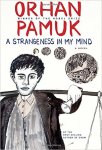
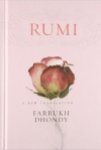
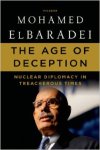

 Shruti Garodia, a content writer who has frequented several of our parties, talked about Jaya’s favorite author Kiran Nagarkar’s books.
Shruti Garodia, a content writer who has frequented several of our parties, talked about Jaya’s favorite author Kiran Nagarkar’s books. 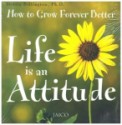 Baraa Al Mansour, a writer from Syria, who is also doing her PhD in horticulture, likes books that explore philosophy.
Baraa Al Mansour, a writer from Syria, who is also doing her PhD in horticulture, likes books that explore philosophy.  Nitin Shukla works as Application Developer at Maxim Integrated Inc. He used to live in Delhi and has now moved to Bangalore where books have turned out to be his best friend. A book that influnced him greatly was Black Swan by Nassim Nicholas Taleb. “ The book is all about finding patterns and it urges you to go after reasons,intuition, cause and effect.” Another writer he discovered who used the premise of reason excessively well was Dostoevsky. He had been reading
Nitin Shukla works as Application Developer at Maxim Integrated Inc. He used to live in Delhi and has now moved to Bangalore where books have turned out to be his best friend. A book that influnced him greatly was Black Swan by Nassim Nicholas Taleb. “ The book is all about finding patterns and it urges you to go after reasons,intuition, cause and effect.” Another writer he discovered who used the premise of reason excessively well was Dostoevsky. He had been reading 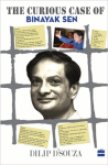 Sudharsan from Vantage Circle read
Sudharsan from Vantage Circle read 


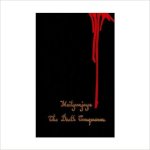 Umakant Soni, Director at Science Incorporated, read
Umakant Soni, Director at Science Incorporated, read  Abhaya read an interesting book called
Abhaya read an interesting book called  Just when I thought that all the books discussed were utterly disconnected, Sanjana Kumar, an endodontist, talked about book called
Just when I thought that all the books discussed were utterly disconnected, Sanjana Kumar, an endodontist, talked about book called  J Vignesh, journalist from The Economic Times, held a precious book of a genre we have so far never come across in our BYOB Parties or Talking Terrace Book Club meets–
J Vignesh, journalist from The Economic Times, held a precious book of a genre we have so far never come across in our BYOB Parties or Talking Terrace Book Club meets–  Shruti Garodia, a content writer, spoke about Khaled Hosseini’s books-
Shruti Garodia, a content writer, spoke about Khaled Hosseini’s books-  Sudharshan Narayanan from Vantage Circle delved into the mystery genre this time and he enjoyed
Sudharshan Narayanan from Vantage Circle delved into the mystery genre this time and he enjoyed  He came upon a book called
He came upon a book called  Harris Ibrahim K.V, Python Tamer at Eventifier, delighted in
Harris Ibrahim K.V, Python Tamer at Eventifier, delighted in  “Not to mention how deeply hurt I was by Voldemort of the Harry Potter series. The sense of doom about him was absent- he was almost (dare I say it?) comic,” Abhaya said.
“Not to mention how deeply hurt I was by Voldemort of the Harry Potter series. The sense of doom about him was absent- he was almost (dare I say it?) comic,” Abhaya said.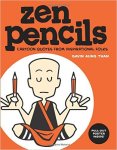 This time, the BYOB party welcomed an overwhelmingly large number of individuals who work in the software space.
This time, the BYOB party welcomed an overwhelmingly large number of individuals who work in the software space. Ralph A decided to skip the self-help and talk about a very tech book called
Ralph A decided to skip the self-help and talk about a very tech book called  I talked about Dorothea Brande’s book
I talked about Dorothea Brande’s book  Jaseem Abid, a platform engineer at Fybr, talked about his taste for more simple books. He read the
Jaseem Abid, a platform engineer at Fybr, talked about his taste for more simple books. He read the  To end the debate, Abhaya mentioned a book called
To end the debate, Abhaya mentioned a book called